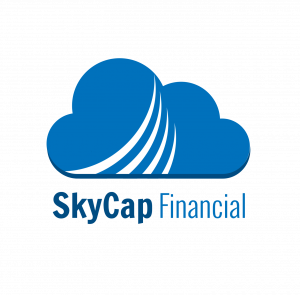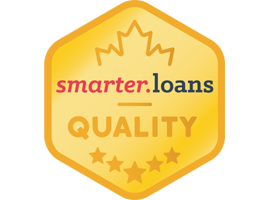Securing funding can be challenging for Canadian businesses with bad credit, especially as traditional lenders often prioritize credit scores when approving loans. Bad credit business loans can offer a solution, providing businesses with much-needed capital despite poor credit histories. However, these loans often come with specific terms and conditions that borrowers should fully understand before committing. This article breaks down what bad credit business loans are, how they work, the options available, and key considerations for Canadian businesses exploring this route.
What Are Bad Credit Business Loans?
Bad credit business loans are designed for companies with low credit scores or limited credit histories. Unlike standard business loans, which typically require strong credit ratings, bad credit loans may have more flexible approval criteria, focusing on factors beyond just credit score. These loans aim to provide financial support to businesses that may have been turned away by traditional banks.
While bad credit business loans make funding more accessible, they often come with specific conditions, such as higher interest rates, shorter terms, or requirements for collateral. Businesses with past financial challenges, recent startups, or inconsistent revenue may benefit from these loans, although understanding the associated costs is crucial.
How Business Credit Scores Affect Loan Eligibility
Business credit scores, which reflect the financial history of a business, play a significant role in loan approval. In Canada, lenders consider both business and, sometimes, personal credit scores when assessing loan applications. A low credit score can signal financial instability to lenders, making loan approval more challenging and resulting in higher interest rates.
For businesses with poor credit, securing a loan may require additional documentation, such as proof of consistent income, a solid business plan, or collateral. While bad credit loans aim to help those with low scores, the creditworthiness assessment remains an essential step in the approval process, impacting loan terms and repayment requirements.
Types of Bad Credit Business Loans in Canada
Businesses with poor credit have several types of loan options, each with unique features. Here are some commonly available types of bad credit business loans:
- Secured Business Loans: Secured loans require collateral, such as equipment, real estate, or other assets. By offering collateral, businesses reduce the lender’s risk, which may make it easier to secure funding. However, defaulting on the loan could result in the loss of the collateral.
- Unsecured Business Loans: These loans do not require collateral, making them appealing to businesses without significant assets. However, unsecured loans typically come with higher interest rates and stricter repayment terms due to the added risk for lenders.
- Merchant Cash Advances: Merchant cash advances provide an upfront sum in exchange for a percentage of future sales. This option works well for businesses with high daily transactions, like retail or hospitality. Repayment is directly linked to sales, which can ease cash flow pressure, though fees can be high.
- Invoice Financing: For businesses with outstanding invoices, invoice financing allows them to use unpaid invoices as collateral to secure funds. This can be a viable solution for companies waiting on customer payments and needing quick access to cash.
- Equipment Financing: This type of loan is designed specifically for purchasing equipment. The equipment itself serves as collateral, making it easier for businesses with poor credit to secure the loan. This financing is limited to equipment purchases but can free up cash for other needs.
Lenders Offering Bad Credit Business Loans in Canada
Businesses with low credit scores have access to various lenders in Canada, each with different requirements and loan terms. Here are some common types of lenders that provide bad credit business loans:
- Alternative Lenders: These online and non-bank lenders often cater to small businesses with poor credit scores. Alternative lenders typically offer flexible loan terms and faster application processes, though interest rates may be higher.
- Credit Unions: Some Canadian credit unions provide business loans for members with poor credit. They often offer more personalized service and may have slightly lower interest rates than private lenders.
- Private Lenders: Private lenders may offer short-term loans to businesses that do not qualify with traditional lenders. While accessible, private loans usually have high-interest rates and shorter repayment terms.
- Peer-to-Peer Lenders: Peer-to-peer (P2P) lending platforms connect businesses with individual investors willing to fund loans. These platforms can provide more lenient credit requirements, although loan terms vary by platform.
Selecting the right lender requires a thorough review of their terms, fees, and requirements, as each lender will have different conditions for bad credit business loans.
Interest Rates and Terms for Bad Credit Business Loans
Bad credit business loans often have higher interest rates than standard business loans, reflecting the increased risk for the lender. Additionally, repayment terms may vary widely depending on the loan type, lender, and loan amount. Some loans may require daily or weekly payments, while others offer monthly payments with longer terms.
Understanding the full loan cost is essential for businesses with poor credit, as high-interest rates and fees can significantly impact cash flow. Businesses should carefully evaluate loan terms, repayment schedules, and interest rates to ensure that monthly payments are manageable within their revenue stream.
How to Improve Approval Odds for Bad Credit Business Loans
Although bad credit business loans are designed for companies with low credit, some steps can increase approval chances or improve loan terms:
- Offer Collateral: Providing collateral, such as business equipment or inventory, can make a loan application more appealing to lenders.
- Show Consistent Cash Flow: Demonstrating steady income, typically through bank statements or financial reports, can reassure lenders that the business can handle loan repayments.
- Provide a Strong Business Plan: Presenting a well-thought-out business plan with clear financial projections and growth strategies can improve the likelihood of approval.
- Consider a Co-Signer or Guarantor: Adding a creditworthy co-signer to the application can reduce lender risk, potentially improving terms or lowering interest rates.
Taking these steps can help businesses secure financing despite a low credit score and may improve the terms offered by lenders.
Alternative Funding Options for Businesses with Poor Credit
Businesses with bad credit may find alternative funding solutions that do not rely on traditional loans:
- Business Credit Cards for Poor Credit: Secured or guaranteed credit cards are available to businesses with poor credit. Regular payments can help build credit over time.
- Lines of Credit: Certain banks or alternative lenders may offer lines of credit with flexible repayment schedules, providing businesses with cash flow as needed.
- Crowdfunding: Crowdfunding platforms like Kickstarter and Indiegogo allow businesses to raise funds from a broad audience, though this typically works best for specific projects or product launches.
- Government Grants and Loans: Canadian federal and provincial governments offer grants and low-interest loans designed to support small businesses. Eligibility may vary by program and industry.
- Equity Financing: Businesses can consider selling a portion of ownership to raise funds without taking on debt, though this requires careful consideration of ownership implications.
Exploring these alternatives may offer businesses with bad credit a more sustainable solution without the pressure of high-interest debt.
Steps to Improve Business Credit Score for Better Loan Options
Improving a business credit score can open up better loan options in the future. Businesses can take several steps to rebuild credit over time, such as:
- Paying bills on time and maintaining a positive payment history.
- Monitoring business credit reports and disputing any inaccuracies.
- Reducing outstanding debt and limiting new credit applications.
- Building relationships with suppliers and vendors to establish positive credit trade references.
By consistently following these practices, businesses can gradually improve their credit scores, making it easier to secure more favorable financing options.
Key Considerations Before Taking a Bad Credit Business Loan
When considering a bad credit business loan, it’s essential to evaluate all factors beyond the initial loan amount. Businesses should assess:
- Loan Fees and Penalties: Understanding any fees beyond interest, such as origination fees, late payment penalties, or early repayment fees, can help avoid unexpected costs.
- Total Loan Cost: Calculating the total cost, including fees and interest, will provide a clearer picture of the loan’s impact on finances.
- Repayment Terms: Businesses should confirm that the repayment schedule aligns with cash flow cycles to avoid financial strain.
- Long-Term Financial Impact: High-interest debt can impact a business’s financial health. Taking out a loan with high fees or short repayment terms can be risky, so borrowers should carefully consider the overall effect on cash flow and sustainability.






